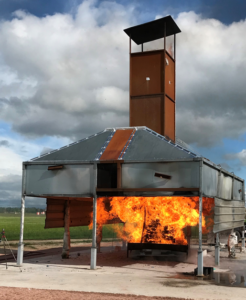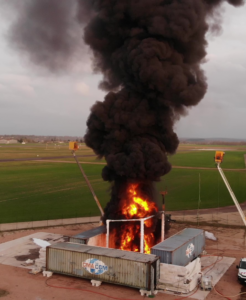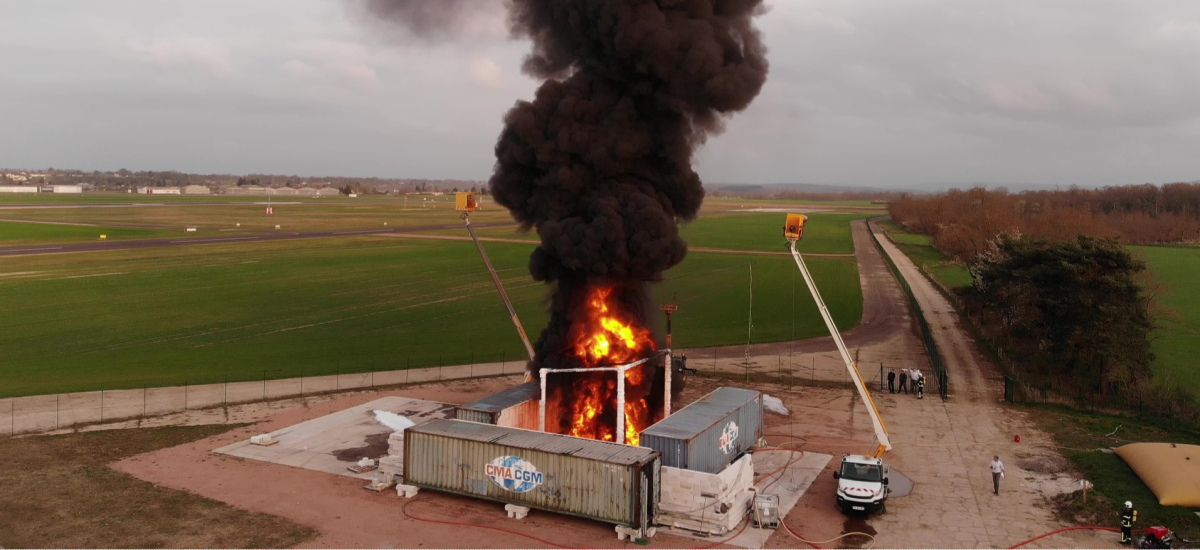7/3/2023
Lithium-ion battery technology first appeared in the 1970s and has been continuously improved over time to extend its life. It has become the technology of choice for many fields, including power storage, communications, industrial, automotive and many other daily applications. The ability to actively control the storage and extraction of energy from these batteries is one of the reasons for their growing popularity.
However, the increasing presence of lithium-ion batteries increases the risk of fire. It is therefore necessary to put in place multiple safety layers to minimise the serious consequences of a lithium-ion battery failure.
Lithium-ion batteries pose a significant fire hazard due to their combination of high energy materials and often flammable electrolytes. Any damage to the separator inside the batteries can lead to internal shorting and a high probability of thermal runaway. If a cell experiences thermal runaway, it is very likely that the heat will spread to adjacent cells, causing a chain reaction with often catastrophic consequences, as these can release large amounts of heat and toxic smoke.
Some accidents in recent years show that these batteries, which are preferred for their unique performances, present great risks in handling and storage, and in the event of a fire they can cause significant damage to the installations and to the environment.
It is therefore essential to carry out regular battery maintenance and to adopt a strategy of risk prevention, early detection, intervention, active extinction and physical separation to limit the probability and consequences of a lithium-ion battery fire.
How to reduce the fire risk: our expertise
Efectis has developed a variety of tools to answer the challenges and questions regarding the new safety issues brought about by the multiplication of energy ‘reservoirs’ in transport systems (cars, railway rolling stock, etc.), as well as in residential and non-residential buildings. The manufacturers and distributors of such technologies are also very concerned by the fire risk, especially when they are stored and transported in large quantities.
Through its scientific expertise, its facilities and its technical resources, Efectis has the capacity to produce a ‘process’ for verifying the performance of these products or facilities in terms of fire safety, using standardised tests, specific fire tests and adapted Fire Safety Engineering (FSE) studies:
- Characterisation of the fire source experiment (small-scale calorimetric cone tests, medium-scale tests under calorimetric hood, large-scale tests on outdoor platform):
- Evaluation of the heat released and of surrounding thermal heat flux
- Evaluation of the protection solutions: passive/active protection system, detection, and extinguishing system or containment elements (shelters, boxes, covers etc.)
- Smoke toxicity analysis (via FTIR) and effects on the environment
- Risks of projection and explosion


- Fire risk analysis: analysis of the regulatory and technical fire safety provisions applicable to the project
- Quantification of the consequences of a fire: numerical simulations evaluating the effectiveness of the solutions implemented (smoke control, heat flux, egress, structural fire behaviour, etc.)
- Fire investigation: research of the causes and consequences of fires
- Accident simulation
- Analysis of experience feedback
Technology is constantly evolving, and so are regulations, standards, researches and other resources. However, Efectis ensures that the proposed resources are able to keep up with these changes to ensure the safety of people and property. The challenge is to ensure that the exposed people and assets evolve in an environment where the risks are controlled.
For more information on the services provided by Efectis concerning electric batteries, please contact mohamad.elhoussami@efectis.com

